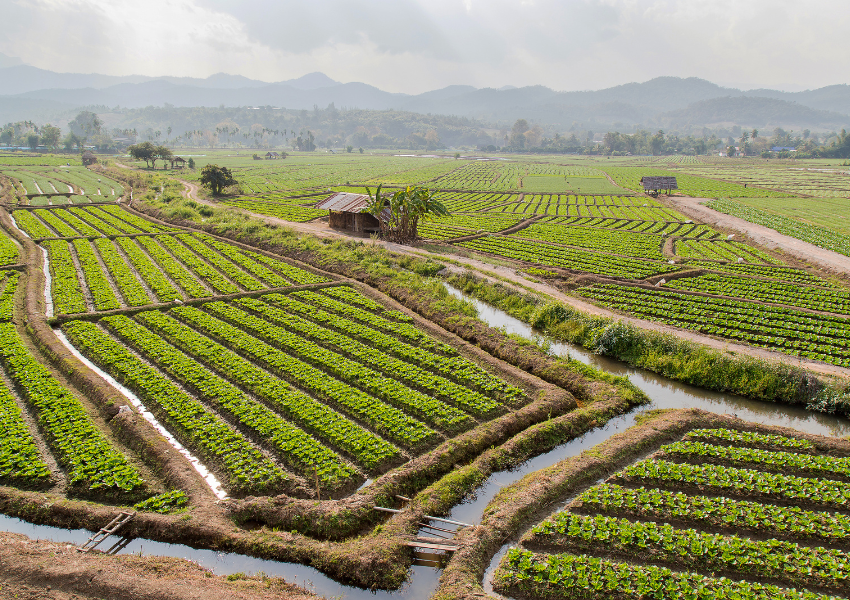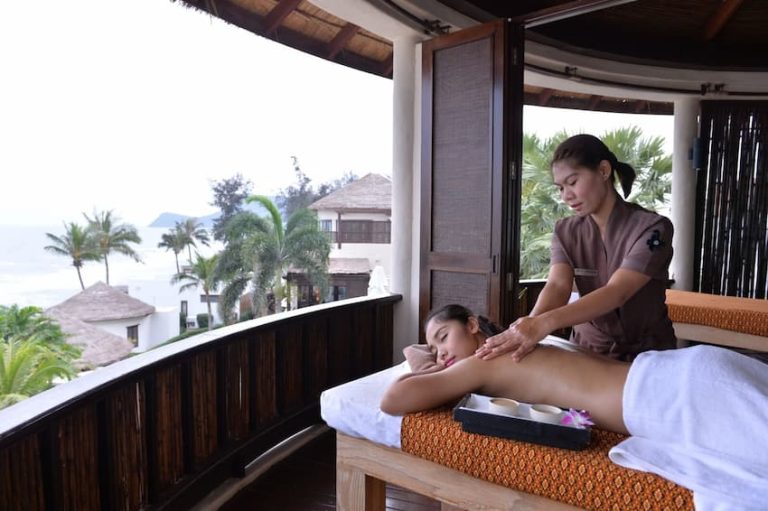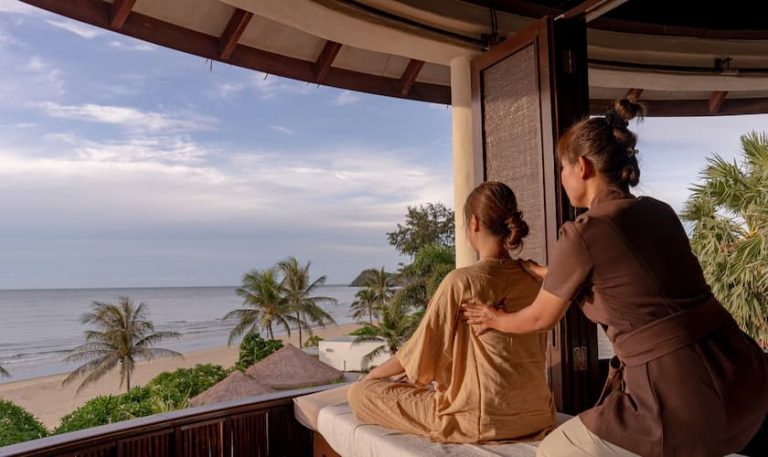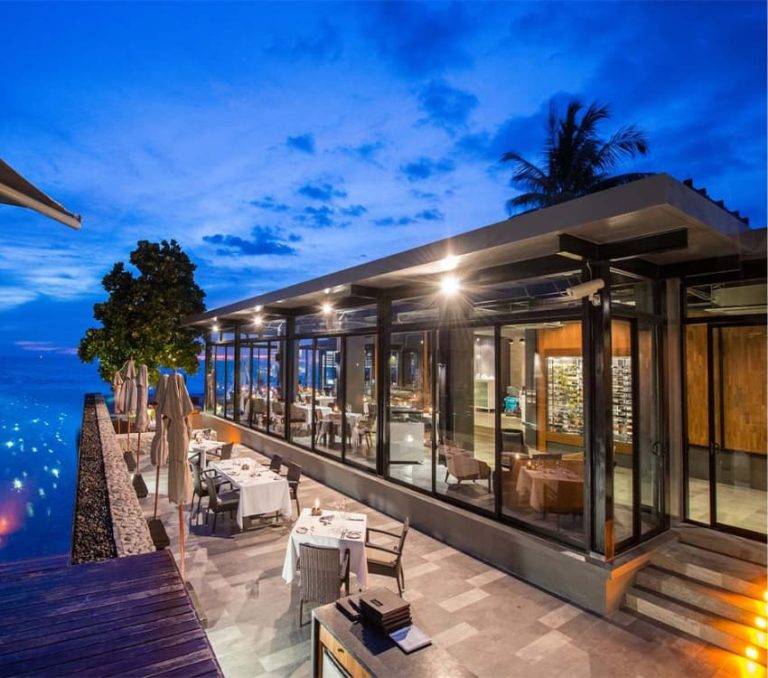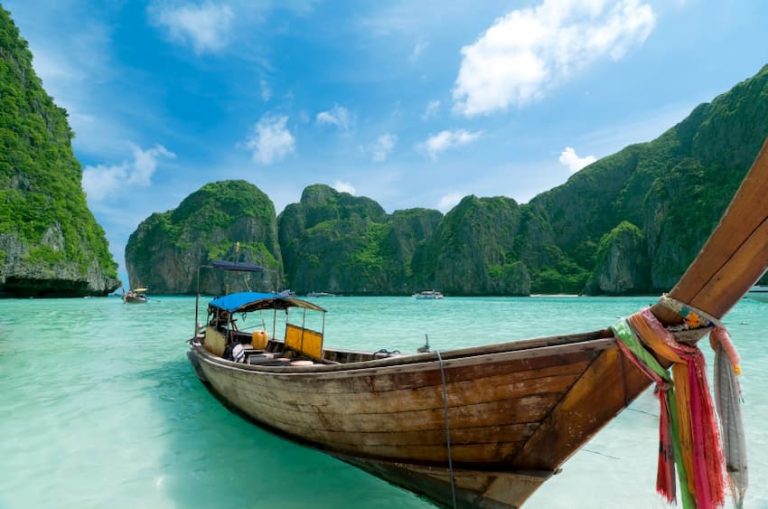Phang Nga province, nestled in Southern Thailand, is a culinary gem with an array of delicacies as diverse as its lush landscape. Phang Nga’s unique geographical attributes contribute to its rich culinary culture with its vast coastline, dense mangrove forests, and fertile soils. The area is known for its wide variety of seafood, fresh tropical fruits, and abundant aromatic herbs and spices, which form the foundation of its diverse cuisine. Yet, as we traverse deeper into Phang Nga’s gastronomic scene, we uncover a newer culinary trend: fusion vegetarian cuisine.
Fusion cuisine is a creative culinary approach that intertwines multiple culinary traditions’ flavours, techniques, and ingredients. This gastronomic convergence results in innovative dishes that offer a novel sensory experience and foster cross-cultural understanding and appreciation. When applied to vegetarian cooking, fusion cuisine presents exciting opportunities to diversify and elevate plant-based dishes, challenging the traditional perception of vegetarian food as plain or lacking variety.
In recent years, vegetarianism has gained momentum worldwide, including in Thailand, as more people become aware of their dietary choices’ environmental, health, and ethical implications. The global food landscape is witnessing an increasing demand for plant-based alternatives, and restaurants are responding by offering vegetarian menus that are as flavourful and diverse as their traditional counterparts. This shift is particularly pronounced in Thailand, known for its vibrant food culture and Buddhist traditions. Vegetarianism is increasingly becoming mainstream, transforming the culinary scene and leading to the emergence of fascinating trends like fusion vegetarian cuisine.
Unravelling Fusion Vegetarian Cuisine
In the context of vegetarianism, fusion cuisine is incredibly fascinating. At its core, fusion cuisine is about blending the culinary traditions of two or more cultures, resulting in innovative dishes embodying the merged cuisines’ essence. It necessitates creativity and an in-depth understanding of different food cultures to design plant-based dishes yet flavourful, satisfying, and representative of the cultures being fused.
When discussing fusion in vegetarian cooking, we focus on the harmonious blending of diverse culinary traditions that do not traditionally prioritise plant-based diets. This convergence presents both a challenge and an opportunity. The challenge lies in maintaining the essence of cuisine while omitting meat, fish, and often dairy—ingredients that may be central to that cuisine. The opportunity, however, is in the potential to introduce a wider variety of plant-based ingredients and techniques, thus expanding the scope and appeal of vegetarian cuisine.
Mixing flavours, ingredients, and techniques from different cuisines is a delicate process. It requires a deep understanding of each ingredient’s role, how flavours interact, and how various cooking methods can alter a dish’s outcome. For example, marrying Thai and Italian cuisines could result in a dish like Spaghetti Phad Kee Mao, where the Italian pasta is prepared with a traditional Thai spicy stir-fry method, creating a plate that hints at both culinary cultures.
By exploring and experimenting with fusion vegetarian cuisine, chefs are expanding the culinary landscape and offering new, exciting dining experiences for vegetarians and omnivores alike. Such fusion dishes challenge the palate with unique flavour combinations and defy expectations of what vegetarian cuisine can offer. They demonstrate that vegetarian food need not be repetitive or dull but can instead be a gastronomic adventure across different cultures, all on a single plate.
The Culinary Landscape in Phang Nga
Phang Nga’s culinary tradition is as intriguing as its geographical makeup. A coastal province cradled by the Andaman Sea, with a backdrop of verdant forests and rugged mountains, Phang Nga is blessed with a bounty of ingredients from both land and sea. This abundance and diversity have shaped the region’s culinary identity, creating a gastronomic culture marked by freshness and flavour.
A confluence of neighbouring regions has influenced the food of Phang Nga. To the north, it shares a border with Phuket, known for its vibrant seafood cuisine. To the south, it neighbours Krabi, a region famous for its fiery curries. These influences, combined with Phang Nga’s culinary identity, contribute to a unique gastronomic panorama that is diverse, dynamic, and deeply rooted locally.
Local ingredients play a significant role in Phang Nga’s food culture. The coastal geography ensures a steady seafood supply, while the fertile soils provide a range of tropical fruits, vegetables, herbs, and spices. These ingredients, combined with traditional Thai cooking techniques like stir-frying, grilling, and steaming, form the backbone of Phang Nga’s culinary tradition.
In recent years, Phang Nga has witnessed the emergence and acceptance of fusion vegetarian cuisine. This evolution reflects a broader shift in the global culinary landscape towards plant-based diets. Local chefs, taking cues from the region’s rich culinary heritage and the global trend of vegetarianism, have started experimenting with vegetarian fusion cuisine. They combine the principles of Thai cooking with elements from other culinary traditions, creating delicious dishes that represent a novel experience for the diner.
This culinary innovation is most vividly embodied in restaurants like Seasons, where the menu represents a harmonious blend of local ingredients, traditional Thai flavours, and global culinary influences, all under the umbrella of vegetarian cuisine. It’s in places like these where one can truly appreciate the potential and diversity of fusion vegetarian cuisine in Phang Nga.
Spotlight on Seasons Restaurant
Nestled inside the serene Aleenta Phuket Resort and Spa on Natai Beach, Seasons Restaurant embodies Phang Nga’s evolution towards fusion vegetarian cuisine. At the forefront of this culinary trend, Seasons offers a unique dining experience that merges Western favourites with traditional Southern Thai cuisine, all on a plant-based menu.
Walking into Seasons, you’re welcomed by an open-air garden near the beach, immediately enveloping you in tranquillity and harmony with nature. The restaurant’s location adds to the overall dining experience, providing a backdrop of calming sea waves and swaying palm trees that complement the fresh, plant-based meals.
Seasons Restaurant prides itself on a food philosophy centred around celebrating local artisan producers and abundant local produce. The menu is a testament to the restaurant’s commitment to clean, sustainable, and, most importantly, delicious food. The culinary team at Seasons recognises the influence of seasons on the ingredients available, crafting two tasting menus that change according to the local seasonal cycle. The result is a variety of dishes that are not only flavourful and beautiful but also representative of the freshness of each season.
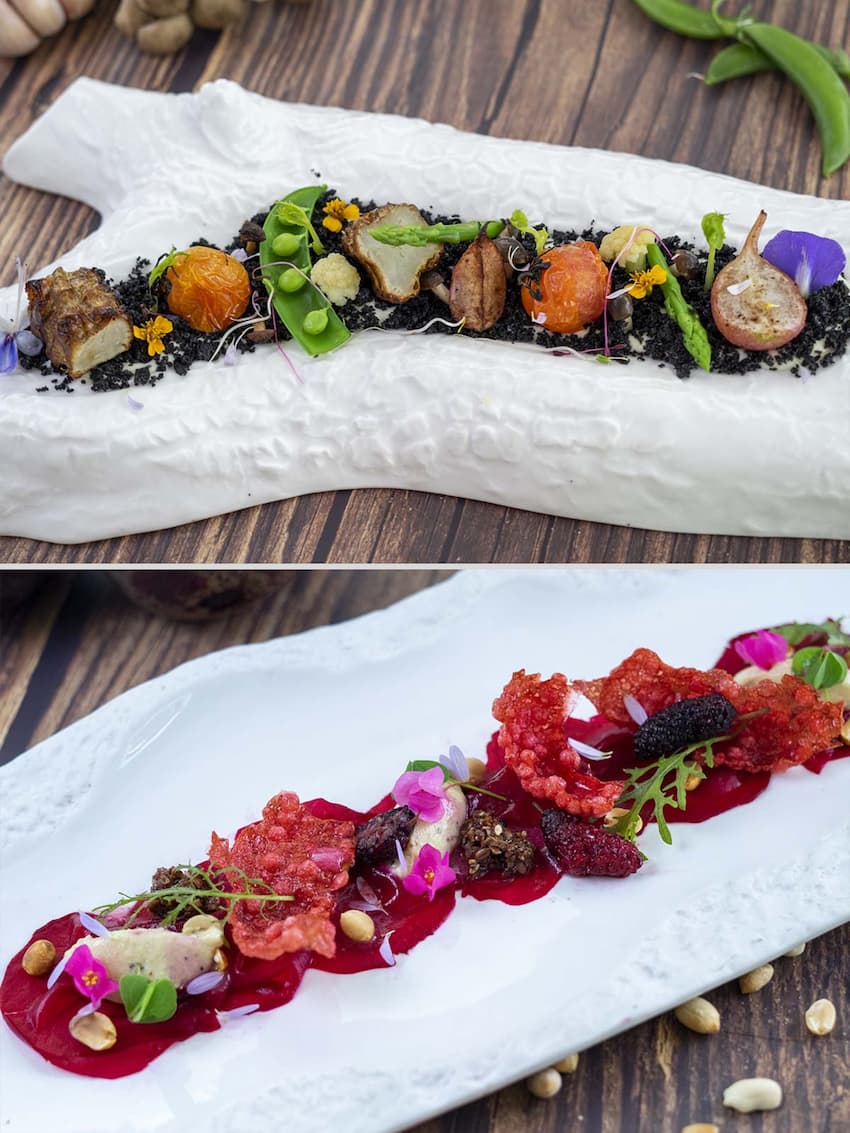
To incorporate fusion techniques into its vegetarian menu, Seasons delves into a culinary exploration that blurs geographical boundaries. The menu draws from classic recipes around the globe, infusing them with the rich heritage of Thai food, mainly traditional Southern Thai dishes. These dishes are akin to the seasons – a fusion of elements that create distinct sensations for the palate.
Through Seasons Restaurant, the culinary crossroads of fusion vegetarian cuisine in Phang Nga comes to life. Whether you choose the East or West tasting menu, the journey at Seasons is made easy. Each six-course tasting menu, carefully curated with wine or alcohol-free unique drink pairings, leads you on a culinary adventure filled with familiar flavours and discoveries. Each dish’s colours, flavours, and textures offer a gastronomic experience that’s healthy, delicious, and a testament to the beauty of fusion vegetarian cuisine.
Health and Sustainability of Fusion Vegetarian Cuisine
The exploration of fusion vegetarian cuisine not only provides an exciting gastronomic experience but also holds significant implications for individual health, environmental sustainability, and cultural exchange.
Firstly, from a health perspective, fusion vegetarian cuisine can significantly enhance dietary variety. The integration of different culinary traditions means a broader range of plant-based ingredients in the diet. This variety not only keeps meals interesting and flavourful, but it also contributes to a balanced and nutritious diet. By exploring various cuisines, one can incorporate a diverse set of nutrients that different cultures offer through their unique plant-based ingredients.
Environmentally, fusion vegetarian cuisine supports sustainable food practices. Restaurants like Seasons that prioritise local, seasonal produce contribute to reduced food miles, lowering the overall carbon footprint of the dishes served. In addition, seasonal produce tends to be fresher and more nutrient-dense, as it does not need to endure long storage and transportation times. Thus, supporting such practices leads to a lower environmental impact and healthier food choices.
Lastly, fusion vegetarian cuisine fosters cultural exchange and culinary innovation. As different culinary traditions merge, there’s an exchange of cooking methods, ingredients, and flavours. This exchange not only educates diners about diverse food cultures but also drives innovation in the culinary world. Fusion vegetarian cuisine is a testament to how food can transcend cultural boundaries and become a medium for global unity and creativity.
In conclusion, the emergence of fusion vegetarian cuisine, as embodied by Seasons Restaurant in Phang Nga, is a trend that is beneficial for individuals, the environment, and society. It signifies a promising direction for the culinary world, one that values health, sustainability, and cultural diversity.
Related Articles
- Exploring the Seasonal Cycle of Vegetarian Cuisine in Southern Thailand
- A Treat for Foodies on Natai Beach
- Elevating Vegetarian Cuisine through Conscious Local Sourcing
- Exploring the Harmonies of Wine and Vegetarian Cuisine
- Natai Beach Restaurants
VISIT US
Our Thai restaurant with a focus on the wonders of East and West plant-based cuisine is located on Natai Beach Phang Nga, right by the sea. As part of the Aleenta Phuket resort, we conjure up fantastic culinary creations that will live long in the memory. Our vegan restaurant welcomes resort guests as well as external visitors.
THE SEASONS RESTAURANT
33 Moo 5, Khok Kloi,
Takua Thung, Phang Nga
82140 Thailand
T: +66 (0) 76 580 333

